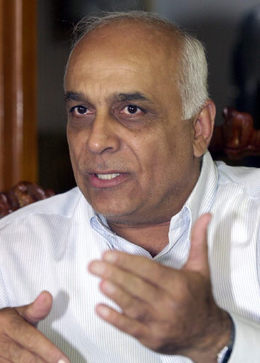 |
The ethically astounding dichotomy is that the U.S. always insists on democracy as the most suitable for human relations and advancement, but it has been extremely unhappy with the result of the Palestinian elections. It became clear to everybody in the Middle East that the US isn’t actually interested in democracy as a political value in itself, but in a democracy tailored to its interests, and that it is always ready to trade principle for expedience. Consequently, the Americans started to appear less enthusiastic about democracy, and their clients in the area, who have been running institutions that teach people democratic tenets, felt ashamed. Ethics didn’t deter the Americans, who decided to put the Palestinians under financial siege on the hope that the Hamas government will be toppled. In cooperation with the Israelis, they have been mobilizing the Europeans, many puppet Arab regimes, many Palestinian leaders who belong to Fatah and the Arab banks that have branches in the west Bank and Gaza. The donating countries stopped transferring money to the Palestinian government, the Arab regimes have been responsive to the American policy, the Israelis have been withholding Palestinian money, the Arab banks have been reluctant to transfer large amounts of money, and Fatah leaders have been making daily problems so as confuse the government. As a result, Palestinian governmental employees haven’t been receiving their salaries for the past seven months. They have received some payments from money smuggled by Hamas or money extended to the President of the Authority who isn’t included in the siege. Under these conditions, so many Palestinians recognized their strategic mistake when they decided to financially depend on others rather than depending on their own sweat. Now, there is a strike in Palestine. Governmental employees, including education and health personnel, are staying home or demonstrating in the streets. They say that they recognize the pressure the Americans are imposing on Hamas, but they demand a solution for their hunger. The argument is absolutely true, but there is no possibility that the bankrupt government will provide money. The strike might be useful against a government that has a budget, and it is a waste of time against a government whose members are jailed by the Israelis. Many cabinet and legislature members from Hamas have been imprisoned by the Israelis as part of the pressure. For many observers, this strike has been encouraged by anti-Hamas members in collaboration with the Israelis and the Americans. These Palestinians hope that either the government would resign, or be deposed by the head of the Palestinian Authority. If the Hamas government disappears, the problem of the salaries will be solved, but the problem of the economy will remain there as a sign of Palestine’s humiliating dependency. The major point here is that U.S. "generosity" is unethical. This American approach is typical in the Arab world, and certainly it produces a reaction. The U.S. shouldn’t be talking about Arab or Muslim terrorism because its policies always pave the way for different antagonistic reactions, among which is violence. Nobody in the Middle East is interested in fighting the U.S. without reason.





